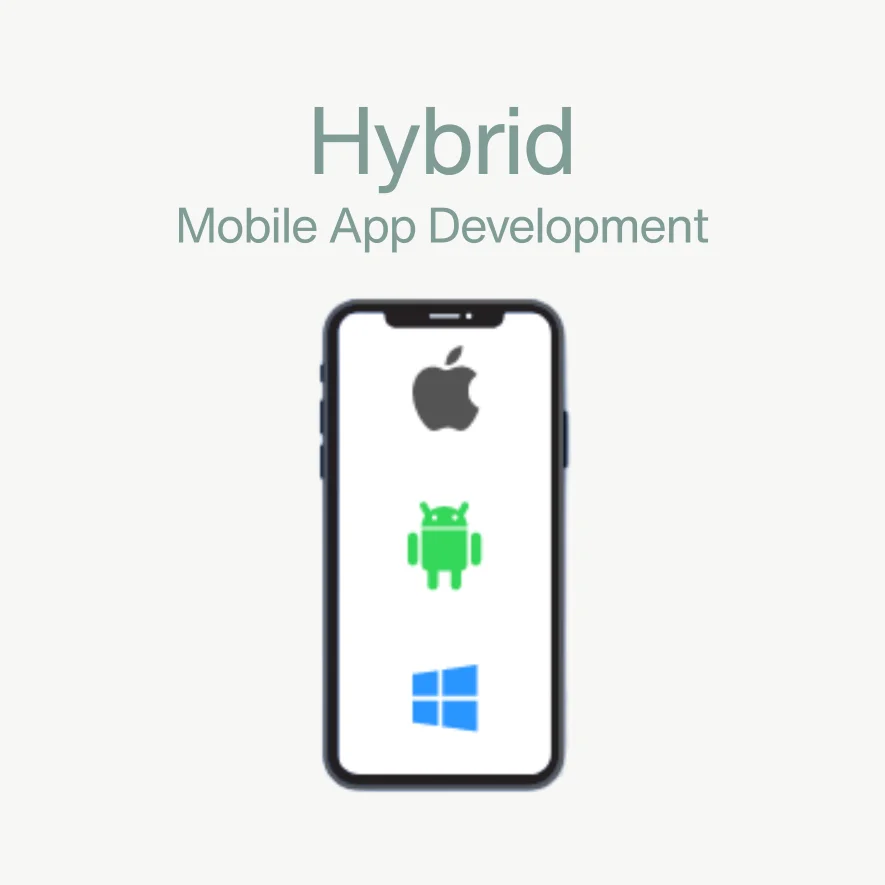The New Era of AI in 2025: From Gemini 3 to Creative AIs
Learn about the best AI tools for 2025, including Nano...
We use cookies for our website to give you the most relevant experience by remembering your preferences. By clicking “accept”, you consent to use of ALL the cookies
This website uses cookies to improve your experience while you navigate through the website. Out of these, the cookies that are categorized as necessary are stored on your browser as they are essential for the working of basic functionalities of the website. We also use third-party cookies that help us analyze and understand how you use this website. These cookies will be stored in your browser only with your consent. You also have the option to opt-out of these cookies. But opting out of some of these cookies may affect your browsing experience.
Necessary cookies are absolutely essential for the website to function properly. These cookies ensure basic functionalities and security features of the website, anonymously.
| Cookie | Duration | Description |
|---|---|---|
| cookielawinfo-checkbox-functional | 11 months | This cookie is set by GDPR Cookie Consent plugin. The cookie is used to store the user consent for the cookies in the category “Analytics”. |
| cookielawinfo-checkbox-functional | 11 months | The cookie is set by GDPR cookie consent to record the user consent for the cookies in the category “Functional”. |
| cookielawinfo-checkbox-necessary | 11 months | This cookie is set by GDPR Cookie Consent plugin. The cookies is used to store the user consent for the cookies in the category “Necessary”. |
| cookielawinfo-checkbox-others | 11 months | This cookie is set by GDPR Cookie Consent plugin. The cookie is used to store the user consent for the cookies in the category “Other. |
| cookielawinfo-checkbox-performance | 11 months | This cookie is set by GDPR Cookie Consent plugin. The cookie is used to store the user consent for the cookies in the category “Performance”. |
| viewed_cookie_policy | 11 months | The cookie is set by the GDPR Cookie Consent plugin and is used to store whether or not user has consented to the use of cookies. It does not store any personal data. |
Functional cookies help to perform certain functionalities like sharing the content of the website on social media platforms, collect feedbacks, and other third-party features.
Performance cookies are used to understand and analyze the key performance indexes of the website which helps in delivering a better user experience for the visitors.
Analytical cookies are used to understand how visitors interact with the website. These cookies help provide information on metrics the number of visitors, bounce rate, traffic source, etc.
Advertisement cookies are used to provide visitors with relevant ads and marketing campaigns. These cookies track visitors across websites and collect information to provide customized ads.
Other uncategorized cookies are those that are being analyzed and have not been classified into a category as yet.
Cyberia Tech, Inc. respects your privacy. This Privacy Policy explains how we collect, use, and share your information. By using our services, you agree to this policy. If any other agreements conflict with this Privacy Policy, the terms of those agreements prevail.
Cyberia Tech complies with the EU-US and Swiss-US Privacy Shield Frameworks for handling personal data from the EEA, UK, and Switzerland. In case of any conflict, the Privacy Shield Principles prevail. Learn more at Privacy Shield. Key Definitions
Information linked to an individual, transferred from the EEA, UK, or Switzerland to the U.S.
Data revealing race, religion, health, sexual orientation, and similar categories.
Effective Date: [ 2026 / 03 / 04 ]
Welcome to The Cyberia Tech ! By accessing or using our website or services, you agree to
comply with and be bound by these Terms of Use and our Privacy Policy. If you do not agree with
these terms, please do not use our Services.
Loading
0 %

As technology evolves, hybrid app development has emerged as a viable alternative for mobile app creators. It’s been years since we have been using mobiles.
The business behind this world has altered our perception of mobile phones. We can say that hybrid application development gave developers more options for creating various mobile apps.
These high-end options accelerated the development process for developers. The hybrid mobile app development will allow us to create an app similar to native app development.
Stay tuned to find out more about this development mission.
Table of Contents
Hybrid app development is a term that can help us understand how the app functions on various platforms.
Another interpretation is that the developer only has to write the code once to make the software work on both Android and iOS.

What’s the point out of it? What we mean by the term “hybrid” is a combination of “native” and “web” development. The benefits and drawbacks of hybrid app development deserve a closer look
As we’ve already mentioned, one of the primary advantages of this mobile app development creation is the possibility of saving time. Here’s a rundown of some more perks:
Because only one code base is required for both platforms, there is no need to act like a native app and write code for each platform separately.
Hybrid frameworks, on the other hand, have the ability to reuse codebases.
In mobile development, hybrid is an excellent choice for reaching your target audience. Since you are in the early stages of determining which platform is the best solution and achieving a balance to get a satisfactory result.
You have two sides of the scale at the same time with this particular development.
The provided frameworks in the backend mobile app development are in harmony on clouds, easily usable plugins with better functionality.
The result is hybrid apps in famous cloud services such as AWS.
The development process of hybrid apps in frontend mobile development is similar to web apps, written in common markup HTML, style-sheet CSS, and JavaScript.
On the other hand, there is no such thing as perfection. Each mobile development has its own set of drawbacks
The answer is straightforward. In mobile app development, native app development refers to an app that is designed specifically for a single platform and operating system. The development time is much longer; however, you will have satisfactory overall performance with simple and complex apps with the native one.
However, if you need the app quickly and are concerned about the cost of development, go with hybrid. Generally, if you are a fan of minimalism and simplicity hybrid app can be the first choice for your fresh idea.
There’s a simple explanation for this. The term “native app development” is used in the mobile app industry to describe apps that are written from the ground up for a particular mobile OS. While the native option takes somewhat longer to build, it provides superior overall performance for both simple and complex programmes.
If time to market is more important than budget, though, hybrid is the way to go. In most cases, a hybrid app can be the first pick for your new idea if you are a fan of minimalism and simplicity.

Don’t choose hybrid app development if you expect awe-inspiring graphics covered with 3D features. But if you consider using it, other tools such as Unity 3D can make up the lacks.
Any app development requires some of the most popular and widely used frameworks. Here is a list of the top 5 hybrid app development tools to get you started.
The first and one of the top mobile app development frameworks in the last year. With an extensive library and some of the best user interfaces for creating and building major-league PAWs.
The framework also includes user interface designs such as themes, typography, and image design.
Besides, the CLI (Command Line Interface) factor in Ionic is another option to assist you in developing a hybrid app with typescript and Node.Js.
On the other hand, you can get standard updates and debugging tools. Ionic’s popularity stems from its efficiency in developing simple and uncomplicated apps.
This framework is the other solution for hybrid mobile app development. Despite some arguments about giving Ionic a better answer, React Native is almost ideal for having a native-like experience. It has:
The opposite part and the cons are:
3. Kendo UI
The other best framework for mobile development gives you a complete set of JavaScript UI elements and jQuery, react Agular, and Vue libraries. Some potentials are hidden in high-performance, astonishing, and receptive applications.
It is a tool to present you make changes to your existing design with updated and advanced features, like charts, spreadsheets, and grid components. However, it needs better documentation.
4. Framework7
It the open-source and free for hybrid application development. It is widely used for desktop, mobile, and web-based applications. It also brings you some of the best UI components for flawless performance on any platform.
5. Aurelia
The last and most powerful framework that gives this chance to use javascript or Typescript. The simplicity of Aurelia is key to having an influential app.
Choosing between each of these frameworks is a hard decision. Other frameworks, such as Flutter, have become popular in recent years owing to their ability.
It’s up to you which one is the right choice. Just look at the bright side, hybrid mobile app development has the tendency to show your mobile app as soon as possible to the audience.
Definitely yes. You have used some of them and have it on your smartphone right now. Here is a list to show you the app that you use every day is made out of hybrid mobile app development.
Is one of the first and excellent examples. A social media that is under gigantic traffic every day but still enjoyable. What is the good point of Twitter?

2. Amazon App Store
The other productive one. A user-friendly interface and flawless performance that gets its power from HTML5. Why do we enjoy using Amazon App Store?
3. Uber
All of us have used Uber at least on time. An app with a simple and clean user interface. Fast performance on Android and iOS with the high-powered feature. Why do we use Uber?
4. Gmail
It’s undeniable to admit that the Gmail application is a great example of hybrid app development. The combination of native and HTML have made the application so beneficial. How come?
5. Evernote
The last app is one of the best planners. A whole pack application to set all your projects and plans in a perfect form. It is connected with your calendar and reminds you of what you have today. Why install it on your phone?
So, we can say that hybrid app development technology is not a thing to be underestimated
“With artificial intelligence, we are summoning the demon. You know all those stories where there’s the guy with the pentagram and the holy water, and he’s like, yeah, he’s sure he can control the demon? Doesn’t work out.r ”
How do you make a hybrid app?
Native React. With React Native, you only need JavaScript and the Ionic Framework to build mobile apps. The Ionic Framework is a full open-source software development kit (SDK) for making mixed mobile apps.
NativeScript Kendo UI Framework7 Quasar
UI Aurelia Onsen
Which language is best for hybrid app development?
Ionic is one of the best hybrid app platforms because it has features that people want: it’s open source, easy to manage, scalable, and easy to read. Ionic has a set of HTML, CSS, and JS parts that are optimised for mobile development and can be used to make interactive apps.
A hybrid app is basically a web app with a lightweight native app “container” that gives it access to native platform features and device hardware that a web app can’t use, such as a device’s camera, calendar, push alerts, and the ability to pinch and spread.
What is hybrid mobile developer?
With hybrid programming, you can make your app just once and then use it on multiple devices, like iOS, Android, or Windows. This saves time for coders who are working on multiple projects made for each app separately.
Hybrid apps can be used on any smartphone, no matter what operating system it has. They make it possible for writers to write one set of code that works with more than one operating system. Hybrid apps like Instagram, Amazon, Evernote, and Netflix are very well-known.
What is crucial in hybrid app development? The simple process of development is the answer. Another advantage of hybrid application development is that it saves time and money.
We’ve had similar experiences with apps created through hybrid mobile app development. Did you have any negative thoughts about it?
No. You almost always use Twitter or Uber. It may not be easy at first, but you get used to it and learn how to work with it. It’s understandable that it lacks user interaction, but there are UI tools that can help.
Please share your thoughts and send us your feedback on this article. By the way, if you have a new idea in this case, please get in touch with us or get helpful services.
You Can Get More Information!
